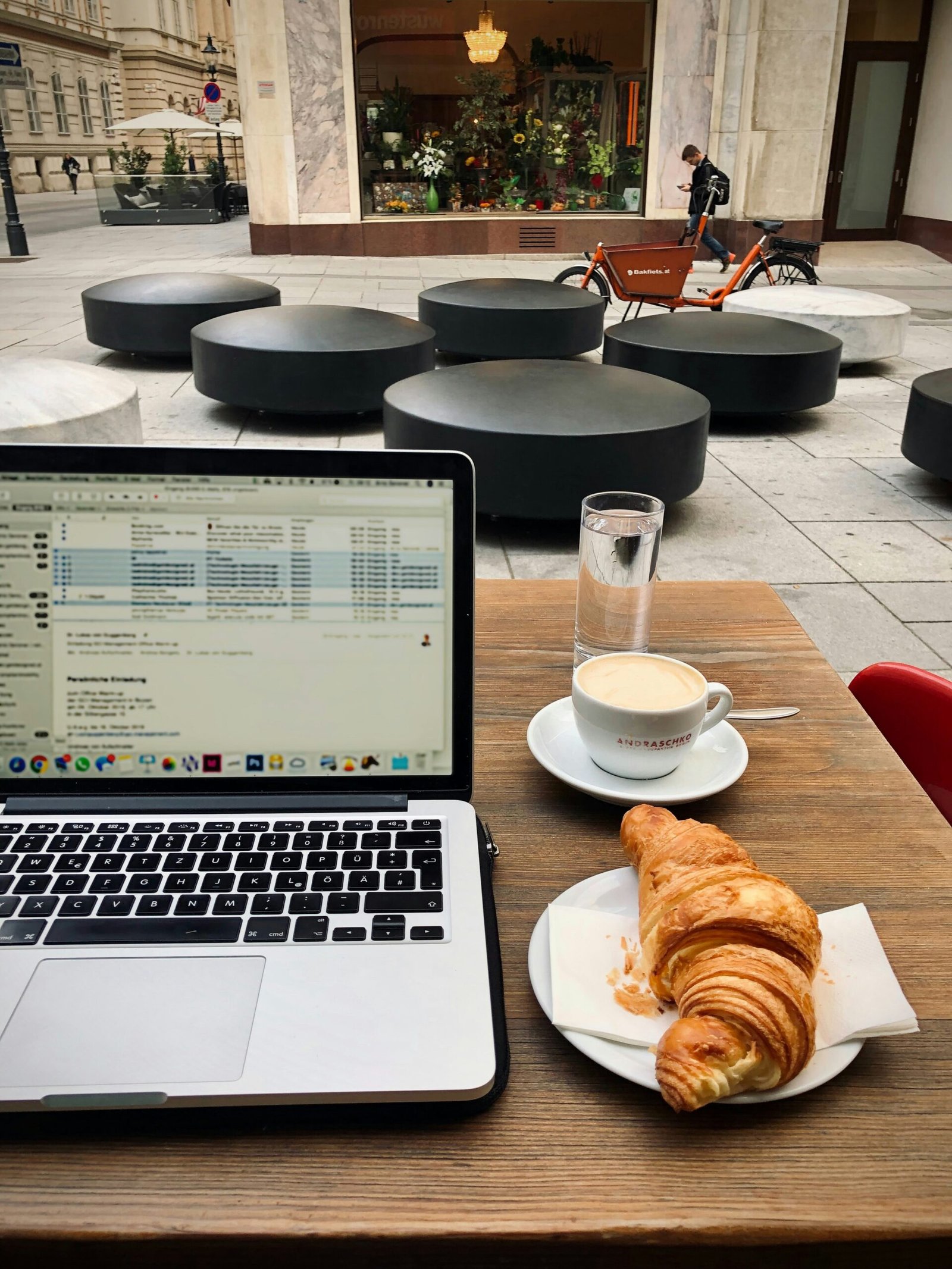Introduction to Remote Job Interviews
The landscape of job interviews has undergone a significant transformation in recent years, with remote job interviews becoming increasingly prevalent. This shift is primarily driven by the rise of remote work, which has seen a substantial increase due to technological advancements and the global impact of the COVID-19 pandemic. As organizations adapt to changing work environments, remote interviews have emerged as a crucial component of the hiring process.
Technological advancements have played a pivotal role in facilitating remote job interviews. High-speed internet, video conferencing tools, and collaborative platforms have made it possible for employers and candidates to connect seamlessly, regardless of geographical barriers. This has not only broadened the talent pool for companies but also provided job seekers with greater flexibility and opportunities.
The COVID-19 pandemic acted as a catalyst for the widespread adoption of remote work and, consequently, remote interviews. With social distancing measures and lockdowns in place, organizations had to quickly transition to virtual hiring processes. Even as the world gradually recovers, remote interviews continue to be a preferred method due to their efficiency and convenience.
Given this trend, it’s essential for job seekers to understand the nuances of remote job interviews and prepare effectively. Unlike traditional in-person interviews, remote interviews come with their own set of challenges and considerations. From ensuring a stable internet connection to mastering virtual communication skills, candidates must be well-prepared to make a positive impression on potential employers.
As we delve into the subsequent sections of this blog post, we will explore various tips and best practices to help you navigate the remote interview process successfully. By understanding the reasons behind the shift towards remote interviews and recognizing their importance, you will be better equipped to prepare and excel in your next remote job interview.
Research the Company and Role
When preparing for a remote job interview, thorough research on the company and the specific role is crucial. Understanding the organization you are interviewing for not only demonstrates your genuine interest but also helps you tailor your responses to align with the company’s goals and values.
Start by reviewing the company’s website. Pay close attention to the “About Us” section where you can learn about their mission, values, and history. This information is often a treasure trove of insights into what the company stands for and what they prioritize in their operations. Additionally, explore the products or services they offer. Familiarizing yourself with their offerings allows you to speak knowledgeably about how you can contribute to their success.
Reading recent news articles about the company can provide a current perspective on their market position, recent achievements, and future plans. This can be particularly useful in understanding any challenges or opportunities the company is currently facing. Being aware of such information can help you articulate how your skills and experiences can address their needs.
Another important aspect of preparation is investigating the team you will be working with. Look for information on the company’s leadership and team members on professional networking sites like LinkedIn. Understanding the backgrounds and expertise of your potential colleagues can help you craft questions that demonstrate your interest in the team dynamics and collaborative processes.
Moreover, getting a sense of the company culture is essential. Look for employee reviews on platforms such as Glassdoor to gain insights into what it’s like to work there. This can help you determine if the company’s values and work environment align with your own preferences and work style. During the interview, referencing the company’s culture can show that you have done your homework and are serious about finding a good fit.
By thoroughly researching the company and the specific role, you can approach your remote job interview with confidence and a deeper understanding of how you can be a valuable addition to their team. This preparation not only boosts your chances of making a positive impression but also helps you determine if the role and company are the right fit for you.
Set Up Your Technology and Environment
Preparing for a remote job interview requires meticulous attention to your technology and environment. Start by selecting a quiet, well-lit space free from distractions. This setting will not only help you focus but also project a professional image to your interviewer. Ensure that your chosen area has ample lighting; natural light is ideal, but a well-placed lamp can also work wonders. Avoid backlighting, which can cast shadows and make it difficult for the interviewer to see you clearly.
A stable internet connection is paramount for a smooth interview process. Test your internet speed beforehand to ensure it meets the requirements for video conferencing. If possible, use a wired connection instead of relying on Wi-Fi to prevent interruptions. Additionally, verify that your webcam and microphone are functioning correctly. Conduct a test call with a friend or use built-in test features on platforms like Zoom or Microsoft Teams to confirm that your video and audio are clear.
Familiarize yourself with the software or platform that will be used for the interview. Download any necessary applications in advance and ensure they are updated to the latest version. This will help you avoid last-minute technical glitches. It’s also wise to have a backup plan in case of unforeseen technical issues. Keep a phone nearby as an alternative means of communication and inform the interviewer of your backup plan at the beginning of the session.
Minimizing distractions is crucial. Inform household members of your interview schedule and request their cooperation in maintaining a quiet environment. Turn off notifications on your devices to avoid interruptions and keep essential documents or notes within reach but out of sight from the camera.
Lastly, dress appropriately for the interview. Even though the setting is virtual, wearing professional attire can boost your confidence and contribute to a positive first impression. Treat the remote interview with the same level of seriousness and preparation as you would an in-person meeting.
Practice Common Interview Questions
In preparing for a remote job interview, it is crucial to practice responses to common questions that you may encounter. This preparation not only boosts your confidence but also ensures that you can present your experiences and skills effectively. Common interview questions typically fall into three categories: behavioral, situational, and those specific to remote work.
Behavioral questions often explore how you have handled various situations in the past and what you have learned from those experiences. A structured approach to answering these questions is the STAR method, which stands for Situation, Task, Action, and Result. For example, if asked, “Can you describe a challenging project you worked on and how you handled it?” you should outline the context of the challenge (Situation), what you were required to do (Task), the steps you took to address the challenge (Action), and the outcome of those actions (Result).
Situational questions, on the other hand, are designed to assess how you might handle hypothetical scenarios. These questions require you to demonstrate problem-solving and critical-thinking skills. For example, an interviewer might ask, “How would you handle a conflict with a co-worker while working remotely?” In such cases, explaining your approach to effective communication and conflict resolution will be beneficial.
Questions specific to remote work often assess your ability to manage time, stay organized, and maintain productivity outside a traditional office environment. An example might be, “How do you manage your time when working remotely?” Here, it is essential to highlight strategies such as setting a clear schedule, prioritizing tasks, and using productivity tools to stay on track.
By practicing these types of questions and structuring your answers thoughtfully, you can convey your qualifications and suitability for a remote work position more compellingly. Remember, the key is to be clear, concise, and relevant in your responses, ensuring you leave a positive impression on your potential employer.
Prepare Your Own Questions
Asking thoughtful questions during a remote job interview is crucial for several reasons. It not only demonstrates your genuine interest in the role and the company but also helps you evaluate if the organization aligns with your career aspirations and work preferences. Crafting well-considered questions reveals your proactive approach and preparedness, traits that are highly valued in remote work environments.
When preparing your questions, focus on aspects that are particularly relevant to remote work. For instance, inquiring about the company’s remote work policies can provide insight into their level of flexibility and support for remote employees. You might ask, “Can you describe the company’s remote work policy and any resources provided to remote employees?” This question indicates your interest in understanding how the company facilitates remote work and supports its remote workforce.
Communication is a cornerstone of effective remote work. Ask about the tools and platforms the team uses for communication and collaboration. A question like, “What communication tools does the team use, and how do you ensure effective collaboration among remote employees?” shows that you are keen on staying connected and productive while working remotely.
Opportunities for professional development are also a key consideration. You might phrase your question as, “What opportunities for professional growth are available to remote employees?” This not only highlights your commitment to continuous learning but also helps you gauge the company’s investment in its employees’ development.
Work-life balance is another critical factor for remote workers. Asking, “How does the company support work-life balance for its remote employees?” can provide clarity on the company’s approach to ensuring a healthy work-life integration, which is essential for long-term job satisfaction.
Effective phrasing of your questions is essential. Be clear and concise, and ensure your questions are open-ended to encourage detailed responses. This approach not only facilitates a richer dialogue but also underscores your analytical and inquisitive nature, qualities that are indispensable for thriving in a remote work setting.
Body Language and Communication Tips
Navigating a remote job interview necessitates a keen awareness of your body language and communication methods. Ensuring you maintain strong eye contact with the camera, rather than constantly looking at the screen, is crucial. This small adjustment can make a significant difference, as it creates the impression of direct engagement with the interviewer. Equally important is the use of appropriate facial expressions and gestures. A genuine smile and nodding can convey enthusiasm and understanding, even through a screen.
Speaking clearly and confidently is another vital component. Utilize a steady pace and articulate your words to ensure your responses are comprehensible. Pay attention to your tone of voice, which should be warm and professional to maintain a positive and approachable demeanor. It’s essential to avoid monotony in your speech, as varying your pitch can help maintain the interviewer’s interest.
Active listening plays a pivotal role in remote interviews. This involves not just hearing but understanding and responding thoughtfully to the interviewer’s questions. Demonstrate active listening by nodding, maintaining eye contact, and occasionally paraphrasing what the interviewer has said to show comprehension. Additionally, timely and relevant follow-up questions indicate your genuine interest and engagement with the conversation.
Showing enthusiasm through a screen can be challenging but is achievable with mindful practices. Lean slightly forward when speaking, as this can project attentiveness and eagerness. Avoid crossing your arms or slouching, as such postures can be perceived as disinterest or defensiveness. Instead, keep a relaxed and open posture to appear more approachable and engaged.
In sum, mastering body language and communication during a remote job interview requires deliberate effort and practice. By maintaining eye contact, using expressive gestures, speaking clearly, and actively listening, you can create a compelling, professional presence that resonates positively with your interviewer.
Follow-Up Etiquette After the Interview
Following up after a remote job interview is not only courteous but also a strategic move that can set you apart from other candidates. A well-crafted thank-you email reinforces your interest in the role and allows you to reiterate key points discussed during the interview. Ideally, you should send this email within 24 hours of the interview to ensure that your interaction is still fresh in the interviewer’s mind.
When writing your thank-you email, it is crucial to maintain a professional tone. Start by expressing your gratitude for the opportunity to interview, mentioning the specific position and the date of the interview to provide context. For example, “Thank you for taking the time to discuss the [Position] role with me yesterday.” This demonstrates your attentiveness and respect for the interviewer’s time.
In the body of the email, briefly highlight some of the key points from the interview that underscore your qualifications and enthusiasm for the role. You might mention specific skills or experiences that align with the company’s needs, as discussed during the interview. This not only reminds the interviewer of your strengths but also shows that you were actively engaged in the conversation.
Moreover, it is beneficial to reiterate your interest in the position. A simple statement like “I am very excited about the opportunity to contribute to [Company] and am confident that my background in [relevant field] makes me a great fit for the team” can be very impactful. It reassures the interviewer of your genuine interest and commitment to the role.
Conclude your email by inquiring about the next steps in the hiring process. This demonstrates your eagerness to move forward and keeps you informed about what to expect. You could say, “Could you please let me know the next steps in the hiring process?” This not only shows your proactiveness but also helps to manage your expectations regarding the timeline.
By following these guidelines, your thank-you email will effectively reinforce your candidacy and leave a positive impression on the hiring team.
Reflect and Improve for Future Interviews
After completing a remote job interview, it is crucial to take the time to reflect on your performance. This reflective practice allows you to identify areas of strength and areas needing improvement, thereby enhancing your chances of success in future interviews. Start by evaluating your interview from both a technical and behavioral perspective. Consider whether you were able to effectively communicate your skills and experiences, and how well you handled technical aspects such as video conferencing tools and stable internet connectivity.
One effective way to assess your performance is to seek feedback from the interviewer. If possible, ask for constructive criticism regarding your responses, technical setup, and overall presentation. Interviewers can provide valuable insights that you might not have considered, which can be instrumental in improving your future performance. Be sure to approach this request politely and express your genuine interest in self-improvement.
Another important step is to critically analyze your own strengths and weaknesses. Reflect on questions where you felt confident and those that challenged you. Were there moments when you were unsure of your answers or struggled to articulate your thoughts? Identifying these moments can help you pinpoint specific areas to focus on for further practice. Additionally, consider recording your practice sessions for self-review or sharing them with a mentor for feedback.
Practicing areas where you felt less confident is key to improvement. Engage in mock interviews with friends or colleagues, focusing on those challenging questions. Use resources such as online interview practice platforms to simulate real interview scenarios. This preparation not only builds confidence but also helps you refine your responses and improve your overall presentation skills.
In conclusion, continuously reflecting on your interview performance and actively seeking ways to improve will enhance your remote interview skills over time. By evaluating your strengths and weaknesses, seeking feedback, and practicing diligently, you will be better prepared for future remote job opportunities, increasing your chances of securing your desired position.





